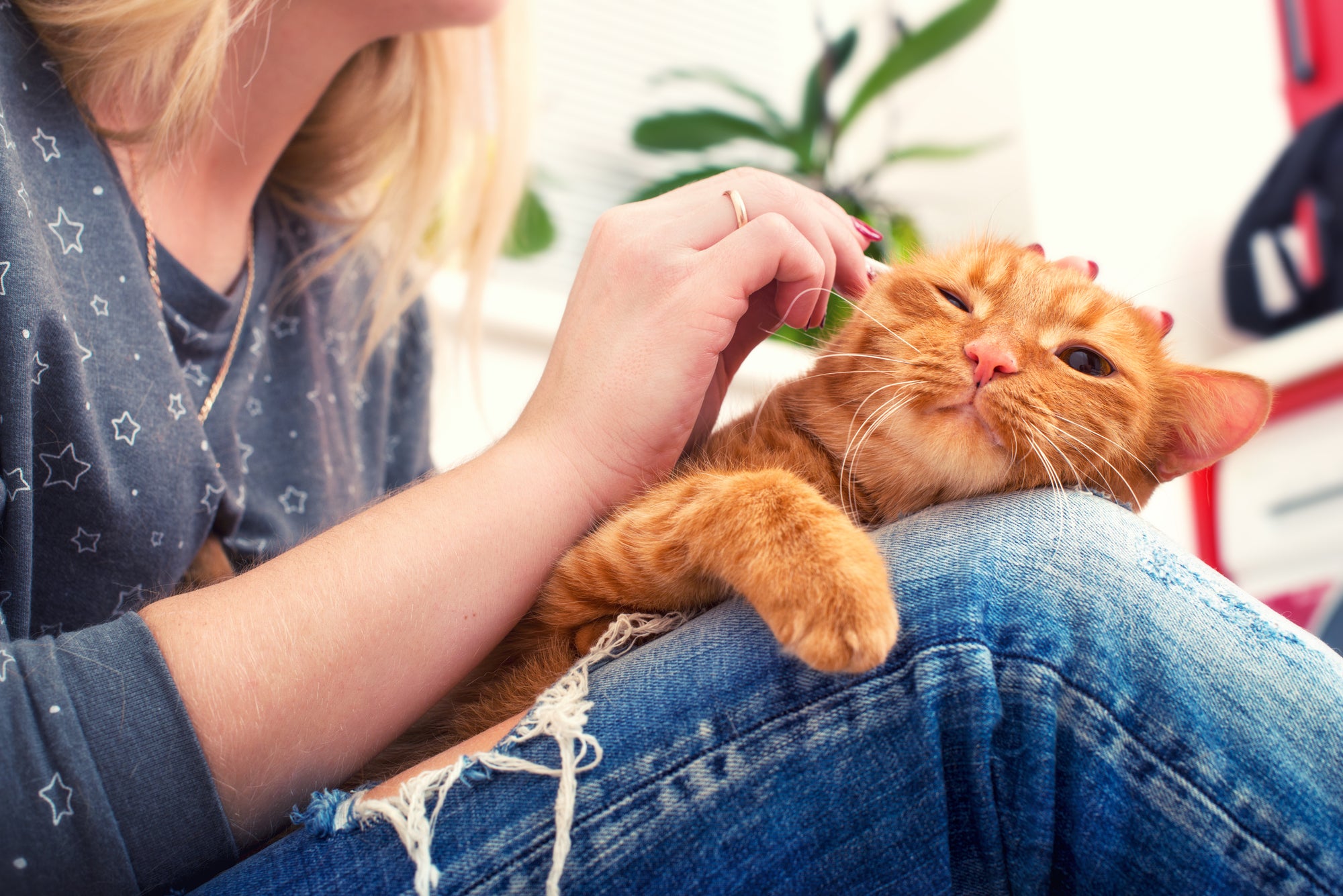Cats are excellent at grooming themselves, but it’s hard for them to clean their ears. If you need to clean your furbaby’s ears, it is crucial to know how to clean their ears properly. You can spot any health problems your cat may have, such as accumulated debris, ear mites, or an infection, by cleaning their ears at home.
In order to prevent an ear problem, such as an infection or mites, periodic cleaning may be required. In this article, we’ll talk about what you’ll need and how to clean cat ears.

How Do You Know If Your Cat’s Ears Need Cleaning?
Regularly inspect your cat's ears. Look out for a build-up of ear wax, which can trap debris and dirt and possibly cause itching or infections. Remember that a little wax is normal. Also Rex, Sphinx, and other hairless breeds may produce more wax than other cat breeds.
If your cat's ears display any signs of infection (such as redness and swelling), discomfort, or injury, do not try to clean them at home. Ask your veterinarian to do an assessment to identify the root of the issue and they will recommend the most appropriate course of action.
Some other ways to tell if your furbaby’s ears may need cleaning or medical attention include the following:
- Frequent shaking of the heads
- Excessive scratching of the ears
- Pus or grime situated in the ear
- The presence of ear mites
- A strong yeast smell
What You’ll Need To Clean Your Cat’s Ears
Although it may take some effort, cleaning your cat's ears at home can actually be pretty simple. If your cat is agitated or resisting your attempts to clean their ears, do not do it.
Before buying an ear cleaner, the Animal Medical Center of Chicago advises that you see your veterinarian. Astringents present in ear-cleaning solutions such as alcohol, vinegar, and hydrogen peroxide can damage your furbaby's sensitive ears.
To start, you will need the following:
Vet-approved ear cleaning solution. Having a good ear cleaning solution that is approved by your veterinarian is important since using the incorrect solution in your cat's ears could cause hearing problems, irritation, and other issues.
Pet WiPees™ Ear. Use Pet WiPees™ Ear to clean and wipe the inside of your cat’s ears. These pet ear wipes were made specifically to protect cats from irritants that cause allergies and ear infections. The distinct texture of these pet ear cleaner wipes helps reduce bacterial population while removing environmental allergies and irritations. These are ideal for wiping out hardened wax or other debris within the ear of your furbaby.
"Use Pet WiPees™ Ear to clean and wipe the inside of your cat’s ears. These pet ear wipes were made specifically to protect cats from irritants that cause allergies and ear infections. "
A partner. If your cat is a little bit anxious, it might be simpler for you if a second person holds your cat while you clean their ears.
Treats. To encourage your cat and help them develop a positive association with ear cleaning, provide treats throughout the process.
How to Clean Cat Ears
1. Sit in a comfortable position and hold your cat in your lap. Speak to your cat in a calming tone and give them lots of affection and treats if they are anxious.
2. Check your cat's ears. Check your furbaby's ears for debris, ear mites (which look like teeny red spots), abnormal discharge, inflammation, or built-up ear wax. The RSPCA Australia also suggests paying attention to offensive odors and skin issues including pimples, scrapes, and sores, which can be indicators of an infection. Before you clean, get treatment guidance from your veterinarian if any of these symptoms are visible.
3. Grasp the tip of their ear flap and gently pull it back.
4. “Flood” the ear with the solution – you should squeeze in enough to fill the ear canal (some may even spill out).
5. Massage. To help the cleaning solution do its job, massage the base of the ear for 5 to 10 seconds with your finger wrapped with the Pet WiPees™ Ear. Allow your cat to shake their head to get out any excess solution.
6. Gently wipe out any ear wax build-up, dirt, or other debris. Gently wipe the inner part of your furbaby’s ears but make sure not to go deeper. Doing so can harm the ear canal and/or ear drum or push debris further into the canal.
7. Praise your cat and provide treats.
How Often Should You Clean Your Cat’s Ears
Many cats have clean, healthy ears and may rarely require ear cleaning. A good rule of thumb is to inspect your furbaby’s ears once a week. If you notice any wax build up or dirt, clean the ears then. However, most cats are fine with ear cleaning every few months.
Even though it's crucial to clean your cat's ears when necessary, excessive cleaning might irritate the ear canal and result in infection. You can get advice from your vet on how frequently to clean your cat's ears. Consult your veterinarian before cleaning your cat's ears if they are red, inflamed, or hurting.

Cleaning your cat’s ears is an essential aspect of basic grooming. Cleaning your cat’s ears regularly can help prevent infection and allow them to live comfortably.









